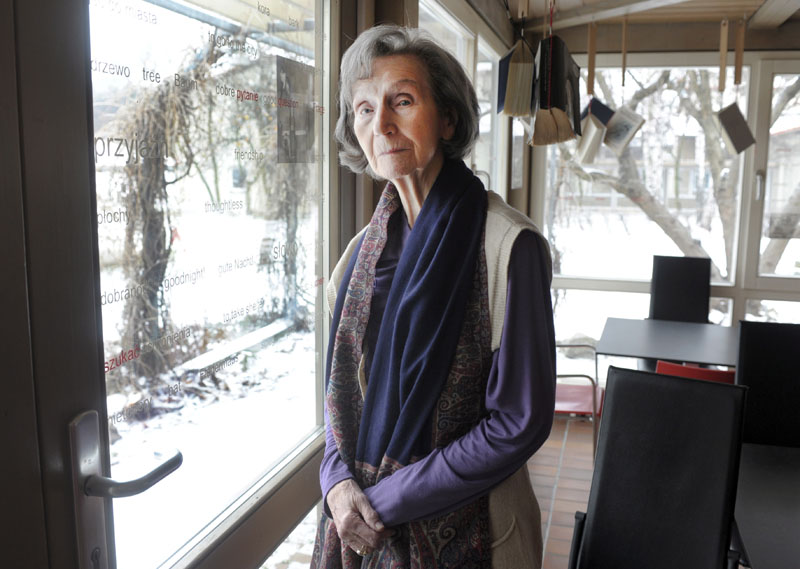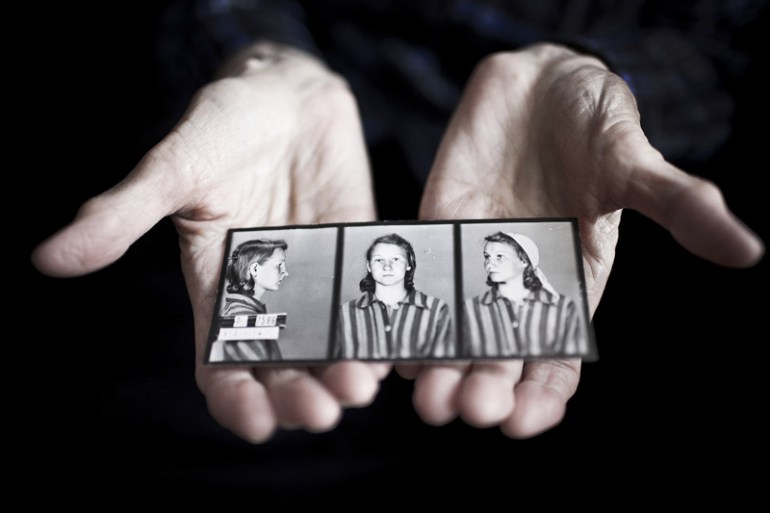Zofia Posnysz, author, screenwriter, reporter and Holocaust survivor passes away at 98
Zofia Posnysz, Polish Holocaust survivor passes away just shy of her 99th birthday. Learn more about this heroic author, screenwriter, reporter and survivor
About Zofia – By Culture.PL
Author, screenwriter and writer for radio and televised theatre performances, reporter and broadcast radio editor. Born August 23, 1923 in Kraków.
The Passenger
is what won acclaim for Zofia Posmysz. It was the first of four books
whose themes were centred around the Nazi death camps (1st edition –
1962). The account of the Auschwitz-Birkenau concentration camp from the
perspective of the German supervisor, a loyal SS servicewoman who was
nonetheless capable of humane reactions, was something new, not just for
Polish literature. The novel was translated into 15 languages. It was
transformed into a minor film version, based on the screenplay written
by Posmysz and director Andrzej Munk,
as well as radio broadcasts and televised dramatic performances. On the
basis of the novel, (with her knowledge but without any collaboration
on her part) Yuri Lukin and Aleksandr Medvedev wrote the libretto for Mieczysław Weinberg‘s opera The Passenger. It was adapted for the stage as well, both in Poland and abroad.
Zofia Posmysz spent three years as a prisoner in Nazi concentration
camps. During the occupation she attended secret courses and worked in a
cable factory. On April 15, 1942 she was accused of distributing flyers
for the Związek Walki Zbrojnej (Union for Armed Struggle), and
arrested. After 6 weeks on trial in a Gestapo jail in Kraków, she was
sent to KL Auschwitz-Birkenau. She survived two months of penal time in
Budy, a sub-camp of the Auschwitz concentration camp, and was twice
saved from death by the camp doctor Janusz Mąkowski. Later she was
assigned less strenuous activities, which gave her a better chance for
survival: in the kitchen and stockroom. On January 18, 1945, she was
transferred to the Ravensbrueck camp and later to an offshoot of that
camp in Neustadt Glewe. She was finally liberated from Neustadt Glewe on
May 2, 1945.

After the war, she took up residence in Warsaw. She applied to the University and began Polish Literature studies. She worked as a journalist and was a copy-editor for the publication “Głos Ludu” (“Voice of the People”). She made her debut at the newspaper in 1945 with an article on the SS servicemen of the Auschwitz camp put before the court in Germany. She didn’t sign the article with her name but instead her identification number at the camp: 7566. For the next few years Posmysz shunned the Auschwitz topic in her writing. In 1952, she began working for Polish Radio, first in the Education department, later in the news editorial section, and was made director of the department in 1958. Radio reporting at this time was mainly a writing job, rather than recording (there was no equipment for sound recording) and it was read out loud from a script in a studio. In 1959, Zofia Posmysz began to write radio broadcast material of a more literary nature. She contributed to raising this genre of (specifically Polish) radio programmes to a high level of artistry as she collaborated with some of the most brilliant Polish directors and actors. She remained, nonetheless, true to the reporting profession. When in 1960 she was named the co-author and administrator of the team preparing the radio novella on country life “W Jezioranach”, she used the method of brainstorming and documenting the topic on-site, much as she would do with a news story.

Zofia Posmysz’s first radio broadcast was Passenger from Cabin 45 in 1959 (she took up the topic of prison camps 14 years after her liberation). A year later, also drawing on her personal experience, she wrote several versions of Ave Maria, the story of a girl who hears music for the first time in her life at Birkenau, takes up voice lessons with one of the camp guards and survives because she performs with the camp orchestra. Over the next few years, Posmysz began to take up contemporary issues for her narratives, such as the story of a complex relationship of a pupil and his teacher, which first came about as the radio play Zanim mnie pan pozna (“Before you get to know me”), followed by Szczęście pani Janiny (“Ms. Janina’s Happiness”) and the screenplay for Janusz Weychert’s unsuccessful film Gorzkie głogi (“Bitter Briers”, 1966). The radio play Palę Martina Edena (“Burning Martin Eden”) was the basis for the screenplay of Julian Dziedzina’s film The Little One (1970). It’s a story of the tragic fate of a boy who tries and fails to get out of a laborer’s hotel to find a better, more cultured life in the city. Inspired by the news and reporting – her own as well as that of others, as the writer explained – she wrote the novels Mikroklimat (“Microclimate”; a doctoral student faces up to the realities of the socialised rural system of the countryside; 1975) and Cena (“Price”; 1978) about a female doctor who wants to cut herself off from her rural ties at any price and ends up paying for it with a family tragedy. In her contemporary writings, Posmysz often analyses the psychological effects of social migration, civilisational transformation and change in customs.



